KEF R3 Review
KEF’s new R-series includes not only three floor-standing speakers but also a compact speaker. Thanks to its mid-tweeter coaxial driver, it offers a three-way design in a small space. Can the KEF R3 be as convincing as its sister R7?
by Alexander Rose
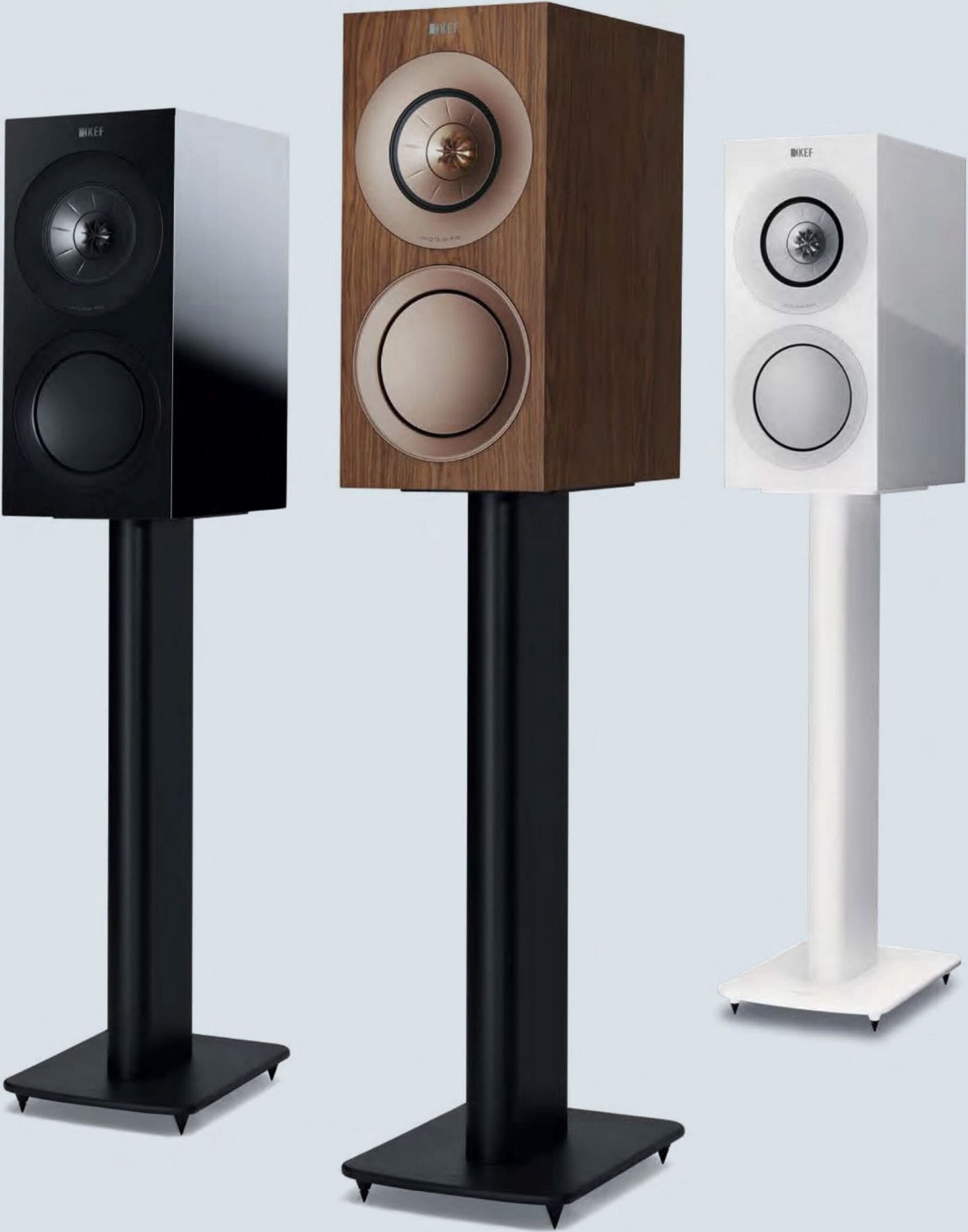
When you look at the three different finishes of the brand-new KEF R3 shown here, you might notice something special. Correct (I’ll assume you noticed): The drivers are color-matched to the cabinet finish. This creates an extremely harmonious look that we wish we’d see more often.
Since we already tested one of its sisters, the R7, please excuse me if I repeat some points already covered…
Three-Way Design
The R3 is a three-way speaker, combining a bass driver with a mid-tweeter coaxial driver, meaning it offers one more driver compared to competitors in the same space.
The heart of the R3, as expected, is the coaxial driver. This features a 25mm aluminum dome tweeter (which kicks in at 2.9 kHz) positioned at the acoustic center of a 12.5cm midrange driver (which handles frequencies from 400 Hz to 2.9 kHz). KEF calls this arrangement Uni-Q. The idea behind it is well-known: It aims to create the acoustics of a point source.
The Uni-Q isn’t new, but it has been continually refined over the years and now operates in its 12th generation. This latest iteration has further reduced coloration, achieved by minimizing resonances in the transition zone between the tweeter and the midrange driver in the Uni-Q driver. A feature called “Shadow Flare” is designed to reduce edge diffraction in the high frequencies by slightly focusing the sound.
Stay Flexible
All frequencies below and up to 400 Hz are handled by the bass driver, a two-part driver made of a flat, concave aluminum foil and a paper cone. This design achieves high rigidity. The woofer is driven by a completely newly developed magnet system.
At critical points of the cabinet, soft, rubber-like elements are used. For example, the bass reflex port is flexibly dampened to prevent longitudinal resonances, and some internal bracing is also designed to be flexible.
During Ryan Adams’ Carnegie Hall concert recording, you can even hear the tense silence in the audience.
Pockets Full Of Cane
Ryan Adams’ “Oh My Sweet Carolina” from the live album “Ten Songs From Live At Carnegie Hall 2014” immediately captivates through the KEF R3. The speaker brings the atmosphere and emotion of this performance to life so well, you can even sense the tense silence in the audience. Its slightly restrained character doesn’t detract from this live experience, as when Adams later reaches for the harmonica, the KEF dynamically springs into action.
It’s right there when you need it. For instance, a Nubert nuLine 34 (test coming) plays more directly (but also more forward), whereas the R3 presents music more holistically. The musicians take a step or two back, offering more clarity, particularly in classical music. While its soundstage is more compact, it’s very cleanly arranged and stable, which benefits all types of music. The vocal reproduction is particularly enchanting, as the KEF R3 strikes a perfect balance between restraint and precision.
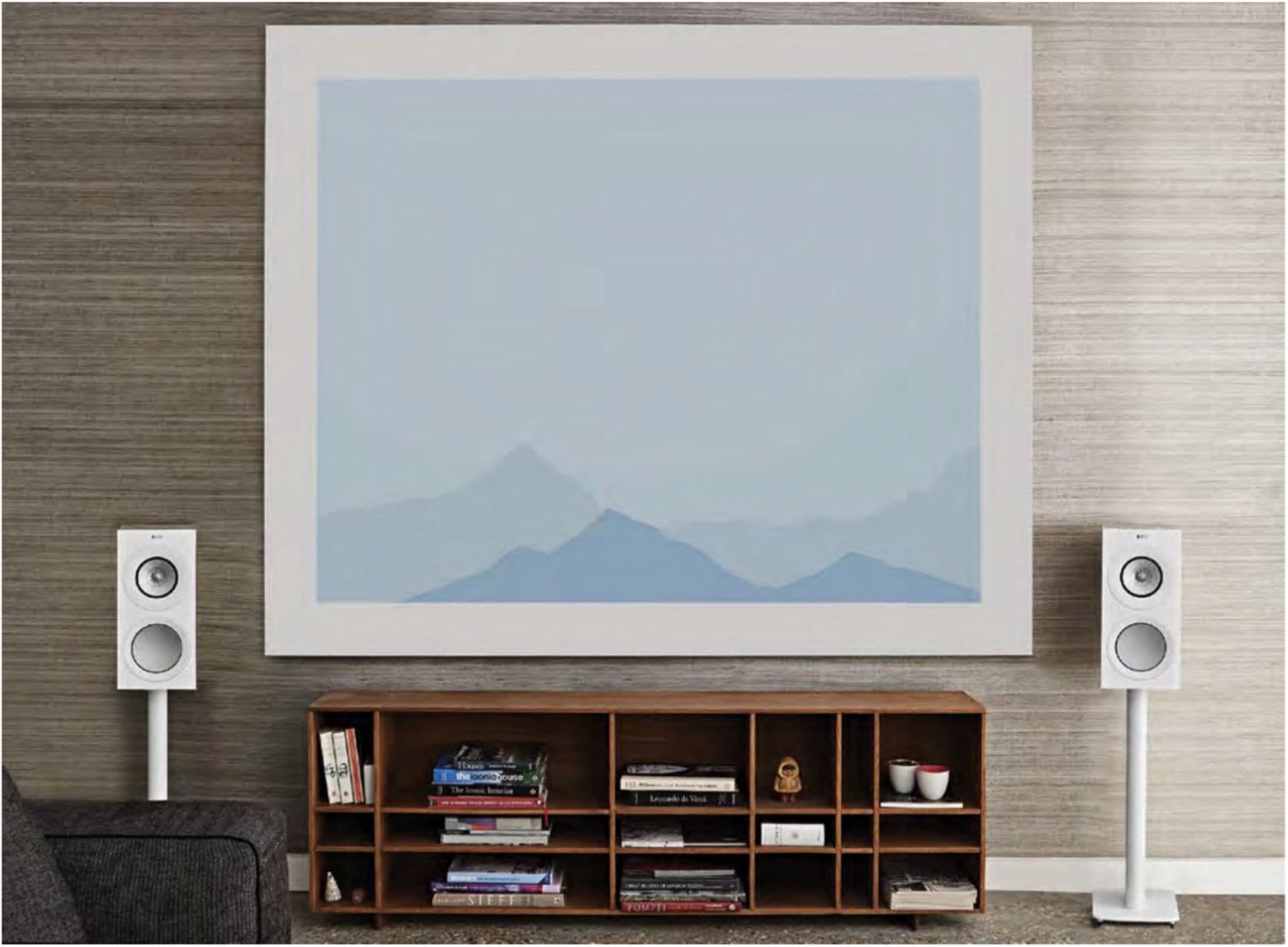
This creates speakers that appear very calm and cohesive in design, and the sound matches perfectly.
Specifications
Dimensions (WxHxD): 20.0 x 42.2 x 33.6 cm
Weight: 13.5 kg
Measurement Diagrams
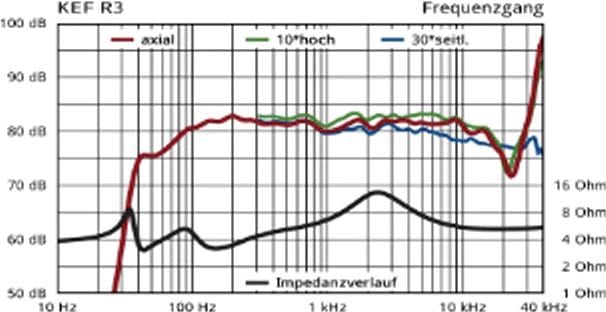
Frequency response & impedance curve
Very balanced with wide dispersion, but not particularly deep-reaching
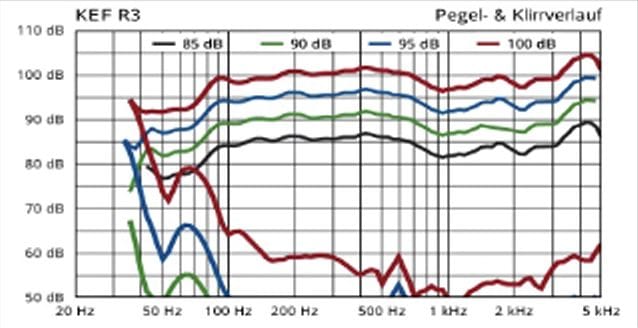
Level & distortion curve 85-100 dB SPL
Significant distortion only at high levels, slightly earlier limits in the deep bass
Lower cutoff frequency -3/-6 dB 75/42 Hz
Maximum level 97 dB
Practicality and Compatibility
Amplifier compatibility diagram
Requires both a powerful and stable amplifier
Room acoustics and placement
Sounds most present and clear when angled directly towards the listening position
This compact three-way speaker with Uni-Q coaxial mid-tweeter offers a friendly price tag. It plays slightly reserved but provides long-term enjoyment. Its imaging is typically KEF – very stable and pleasantly three-dimensional.
When you purchase through links on our site, I may earn an affiliate commission. Here’s how it works.
KEF R3 Unboxing | ASMR
Watch and listen as we unbox a pair of KEF R3's. The R3 stand mount shares the same Uni-Q driver array as the range topping ...






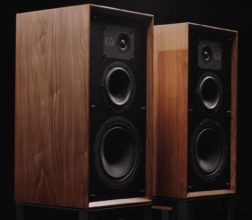
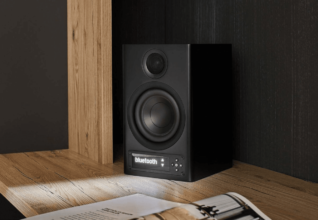
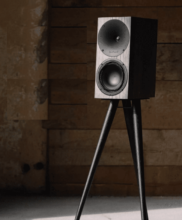

Great review! Please make the response graphs (1 & 2) larger or able to open full size in another window. Also a direct comparison with a graph of an LS50’s frequency response would also be helpful.
Thanks for your feedback. I updated the response graphs. <3
Hi, none of the images are loading; the links seem to be broken. Could you please check the images?
Thanks!
Hi Daniel,
thanks for your information. The images are normal when I accessing this post. Could you tell me which browser and operation that you used ?
Or may be the errors come from this website’s hosting provider. Can you please help me recheck ?
haven’t purchased speakers in over a decade. I have the LSA 1 Statement Monitors which is no longer in business but they have reproduced music phenomenally for all my Jazz, rock and roll and acoustic music. I have a Pass XA 30,5 amp also magical with my source being either an old Cary DVD 7 CD player. I also play through Sonos from time to time. At around $2000-2750 which is what I have to spend, would these or something else be a big improvement?
Thanks
Drew
Whats the frequncy response in relation to a similar speaker?
I used KEF R3’s with my Accuphase e-380, Chord Qutest DAC & LUMIN U20 Mini streamer audioquest rocket 88’s speaker and Nordost Red Dawn analog to amp and Nordost Tyre 2 digital cable 3′ simply breathtaking soundstage.